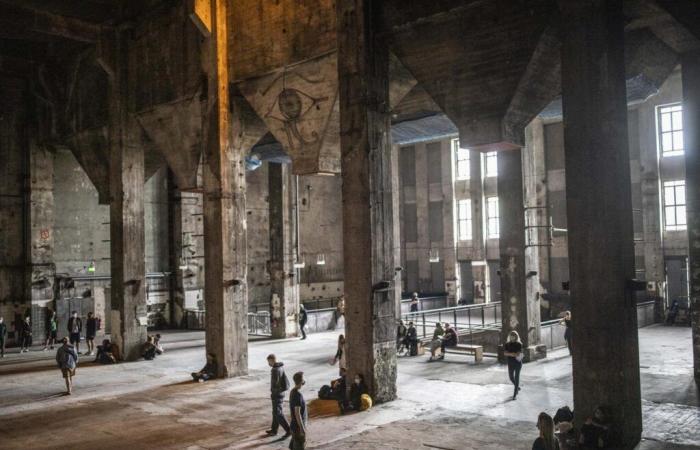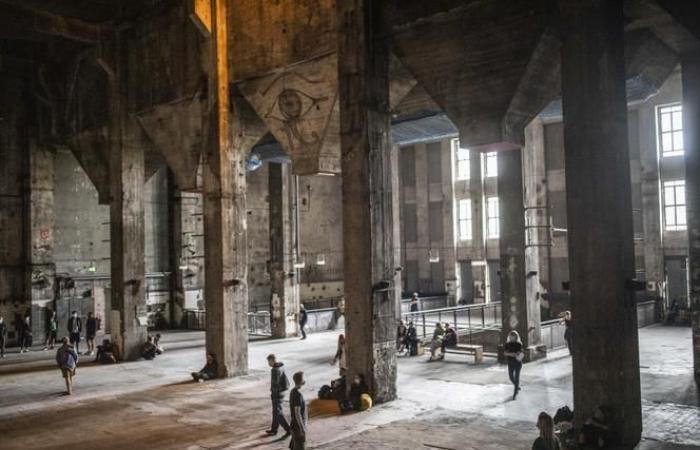Under the Oberbaumbrücke, the grandiose neo-Gothic bridge over the Spree which marks the old border between West Berlin (Kreuzberg district) and East Berlin (Friedrichshain), we queue, on this October night, to enter the Watergate. Waiting in the dark to enter the famous club is a ritual of the Berlin night. Almost a rite of passage from one world to another, which has its precise codes. Once the bouncer test has been passed, the phone cameras are carefully covered with an opaque sticker. On the two floors of the club with its immense glass facade overlooking the river, four star DJs perform that evening under the colorful neon lights. We dance, we frolic and we consume to excess, away from social networks. Every night, from Thursday to Sunday, the techno rhythm carries away bodies and disconnects minds, erasing all notion of time. This experience, an emblem of German pop culture internationally, is also an essential economic asset for the city.
Is this era coming to an end? Watergate, which with Berghain is one of the most famous Berlin clubs in the world, will close its doors at the end of the year, after twenty-two years of existence. The cause: the shock of the Covid-19 pandemic, which broke the dynamics of Berlin's nightlife, but also the rent demanded by the owner of the premises, which exploded, as in the entire city. Wilde Renate, another well-known address hosted by the same investor, is also due to close in 2025.
The millions who chase techno, the image is easy. This is only part of the truth: historically, clubs have always migrated to the city as it developed. However, the closure of Watergate clearly marks a rupture. The German capital, long adored as “poor but sexy”according to the expression formulated in 2004 by its former mayor, Klaus Wowereit, is in crisis. As a reflection of Germany which has benefited so much from the open world resulting from the fall of the wall, just thirty-five years ago, in 1989, liberal Berlin has significantly lost its luster.
Kreuzberg, “it’s a horror film”
Questioned by the newspaper Berliner ZeitungIn mid-September, Ulrich Wombacher, one of the three founders of Watergate, justified the club's closure by explaining how much the Kreuzberg district, in particular, had deteriorated. “There’s nothing sexy about it anymore, it’s a horror film. (…) Kreuzberg has a real drug problem, with lots of homelessness, crime, filth and other visible social ills. When club and party tourism stops, it’s obvious”explains the former DJ. Attendance at clubs has fallen; festivals, where major DJs perform in front of a larger audience, now compete with them. “For a long time we thought we were irreplaceable. But why shouldn't clubs be a transitory phenomenon? The club culture is extremely fragile,” slices Mr. Wombacher, who celebrated his 50th birthday in 2023.
You have 72.9% of this article left to read. The rest is reserved for subscribers.







